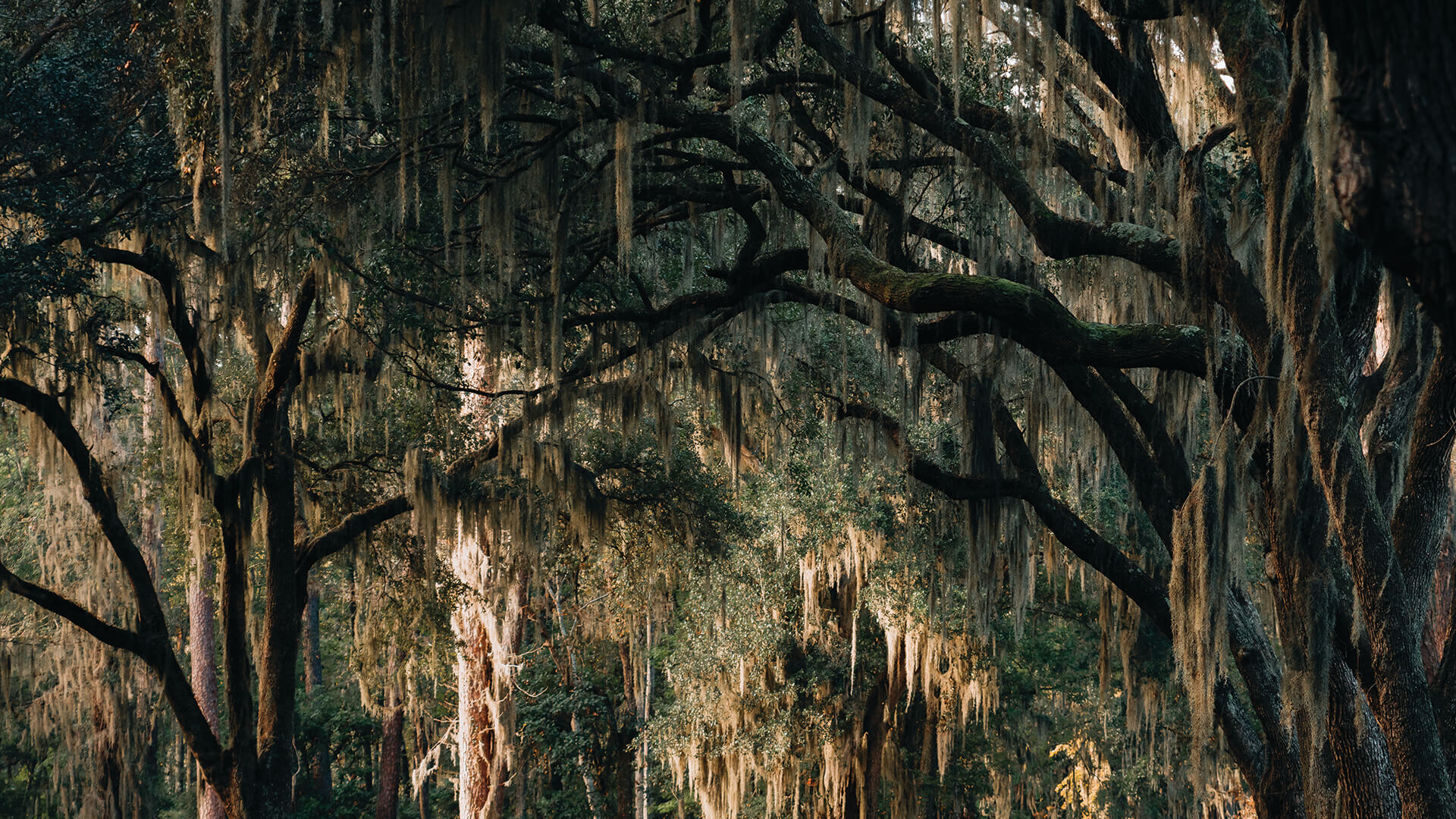
We get lots of calls each year from Florida homeowners concerned about their live oak trees and Spanish Moss or Ball Moss that is growing on them. Usually most homeowners are afraid these typically innocuous plants are a danger to their trees. It sometimes look like a healthy tree is being overtaken by a horrible infestation. Usually this is not the case. First it’s important to learn more about what Spanish Moss and Ball Moss are.
Both Spanish Moss (Tillandsia usneoides) and Ball Moss (Tillandsia recurvate) are native to Florida. Both of these plants are actually part of the Bromeliad family and not a moss or lichen at all. Neither one is parasitic, meaning they do not live off the trees nutrients. They are both more opportunistic, only using the tree for physical support. The both have seeds that are dispersed by wind or birds and live best in humid environments. This is where their similarities part.
Spanish Moss
Spanish Moss, also known as long moss or greybeard, is best known for its appearance. It can grow up to 20 feet and has thin curvy scaly leaves that can measure up to 2 ½ inches long but are usually less than 1/32 of inch wide. The leaves can form a something that looks like a chain that hangs down from the branches of its host tree. Many companies use Spanish Moss as an organic packing material and florist use it to pack around the base of plants because it is very effective at holding in moisture.
While Spanish Moss is not usually harmful to a Florida live oak tree there are a few ways it can cause damage to the tree. First, it can inhibit the growth rate by reducing the amount of light that get through to a tree, slowing or stopping photosynthesis. Additionally if an oak tree is supporting a prolific amount of Spanish Moss a branches can actually break under the weight. Lastly during high wind & hurricanes excessive amount of Spanish Moss can increase a trees wind resistance, causing catastrophic damage to the tree.
Ball Moss
Growing best in areas of low light and little airflow, Ball Moss can be as small as a golf ball or as big as a volleyball , it actually collects moisture contained in the air and from bacteria that lives within the ball itself. They are made up of clusters of curved stems and fairly compact leaves, which give them their ball shaped appearance. In the spring they usually produce blue or purple flowers from the end a long stem. Interestingly these plants show promise as a treatment for cancer and AIDS.
Usually these bromeliads do not harm healthy trees, but may become prolific on a tree that is already weakened. Occasionally an overgrowth of Ball Moss will block out light from reaching a tree. If enough photosynthesis is stopped, growth can be inhibited and the tree may start to show signs of poor health.
Most likely the Spanish Moss or Ball Moss is not causing damage to your beautiful Southern Live Oak. There are a couple of situations that should be evaluated by an expert in oak trees:
If you need help evaluating the condition of your live oak tree you should call in a professional arborist. Sustainable Tree Care is always available to answer your questions or come to your home to take a look at any trees you concerned about. Give us a call and we can let you know if your tree needs help and what kind of help it need.